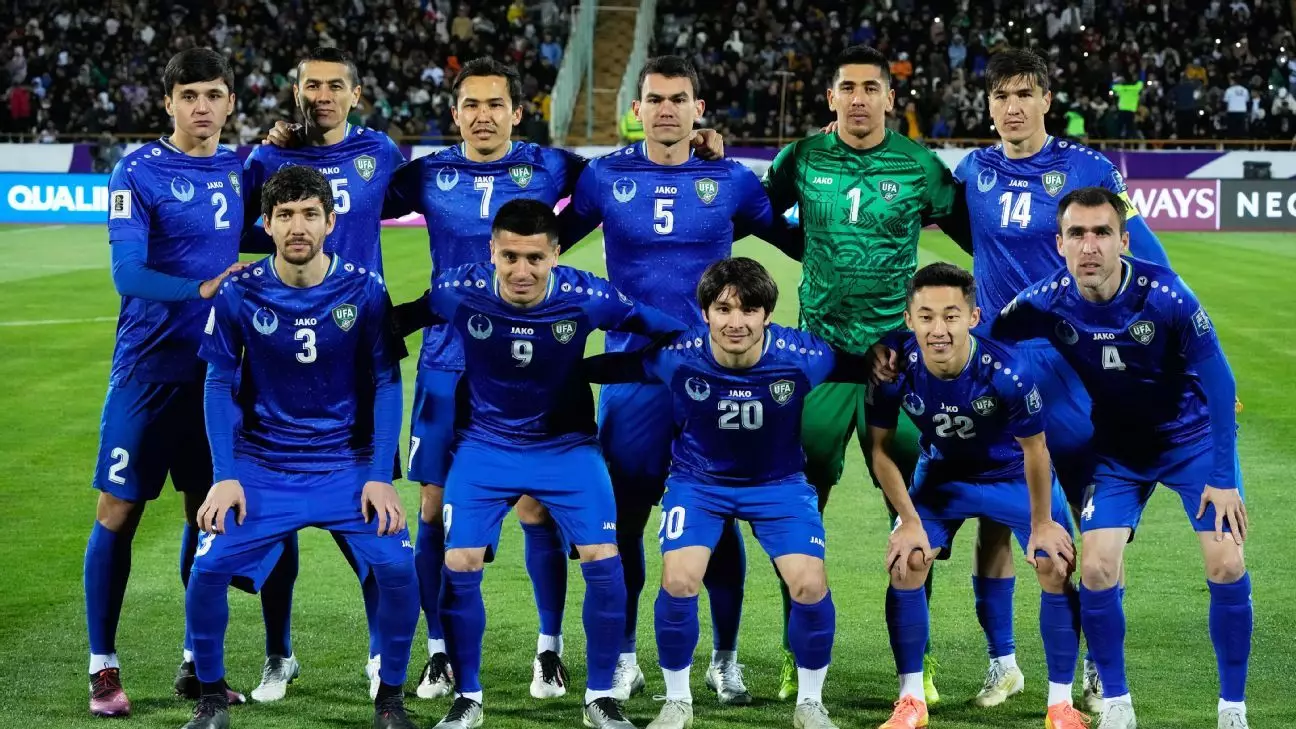In a moment that will echo through the pages of football history, Uzbekistan has finally secured its place in the men’s World Cup finals after enduring seven previous attempts that culminated in heartbreak. The team’s 0-0 draw against the United Arab Emirates in Abu Dhabi marks a leap into the unknown—a journey into an arena previously inaccessible to a nation that gained independence from the Soviet Union in 1991. This qualification not only represents a monumental achievement for Uzbekistan’s footballing aspirations but also signifies the emergence of a new powerhouse in Asian football.
Defensive Brilliance and Key Contributions
During the qualifying match, goalkeeper Utkir Yusupov was nothing short of extraordinary, making a crucial trio of second-half saves that ultimately paved the way for this historic draw. His performance exemplified the spirit of resilience that defines this squad. Uzbekistan’s journey has been crafted through a blend of strategic planning, rigorous training, and a belief in the team’s potential. Yusupov’s impact extends beyond the pitch; he has become a source of inspiration for aspiring athletes across the nation.
Asian Giants on the Road to North America
Uzbekistan joins elite company on the road to the 2026 World Cup, standing alongside footballing giants like Japan, New Zealand, Iran, and Argentina. Amid this competitive grouping, the co-hosts—the United States, Canada, and Mexico—will enter the tournament with home-field advantage. The hours that span the final qualifying matches remain electric, as teams like Australia and Jordan inch closer to securing their berths. Australia, with its staggering goal difference, holds a significant edge, allowing them a buffer in their upcoming showdown with Saudi Arabia.
Jordan’s Ascendant Performance
Jordan’s rise in the qualifying rounds cannot be overlooked. With a decisive 3-0 victory over Oman, bolstered by Ali Olwan’s remarkable hat trick, they find themselves on the brink of World Cup qualification. This win not only showcases Jordan’s tactical acumen but also their ability to harness collective strength under pressure. The anticipation intensifies as they await the outcome of South Korea’s clash with Iraq, a match that could solidify their journey to the World Cup even further.
Indonesia’s Emergence
In the wider Asian football landscape, Indonesia has made waves by ensuring a continuation of their World Cup dreams. A hard-fought 1-0 victory over China, marked by Ole Romeny’s late penalty, has kept them alive in the qualifying process. This triumph signifies not just a step forward for Indonesian football, but also a message to regional rivals that they are a force to reckon with. Their progression to the fourth round underscores the growing competitiveness of Asian football as nations invest more in their sporting infrastructures and talent development.
As Uzbekistan celebrates this unprecedented achievement, the world watches with bated breath to witness how this evolving narrative unfolds on the global stage. The World Cup is not just a destination; it is a journey that embodies struggle, triumph, and the realization of dreams that seemed distant. In this quest for glory, every match serves as a testament to the resilience of the human spirit across nations, igniting hope among fans and players alike.

